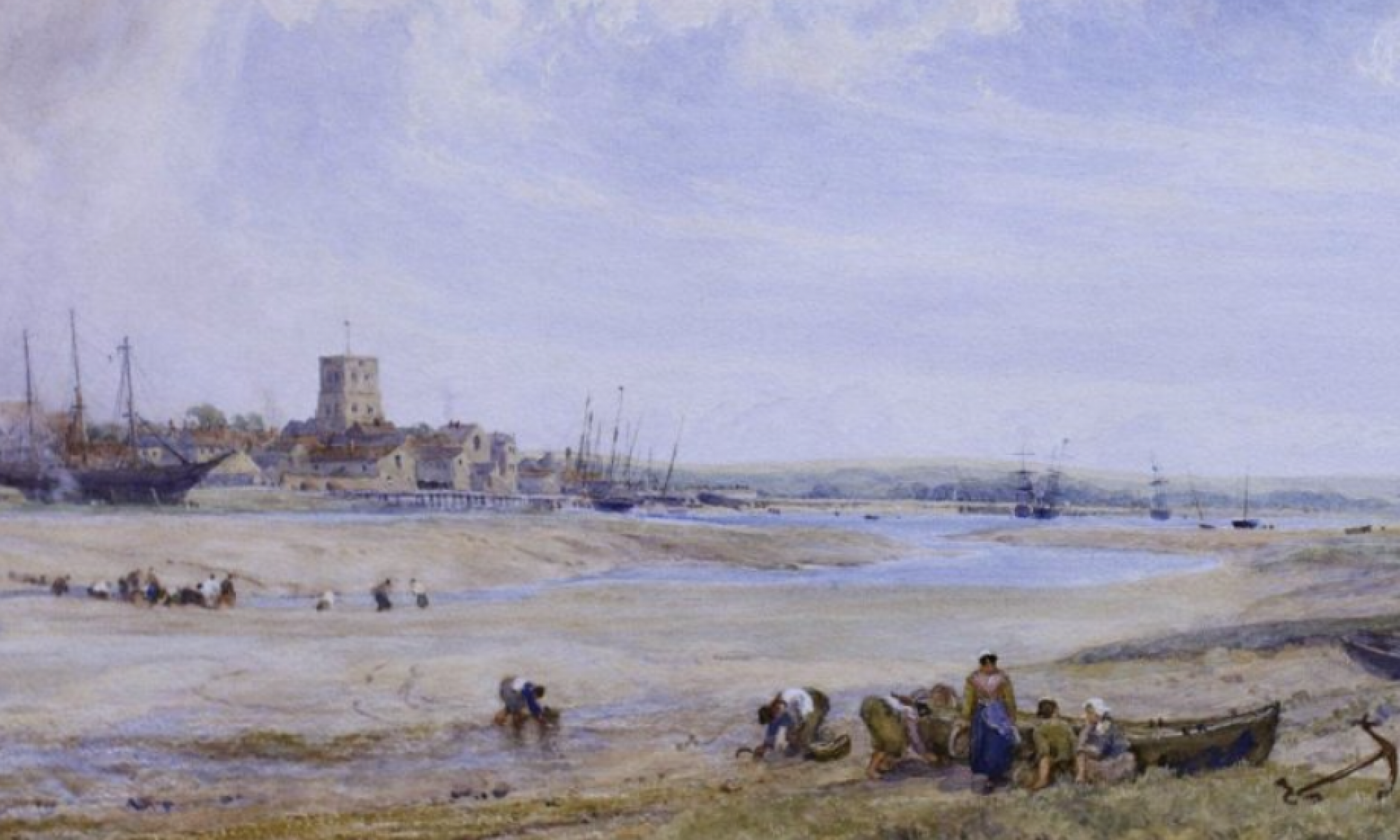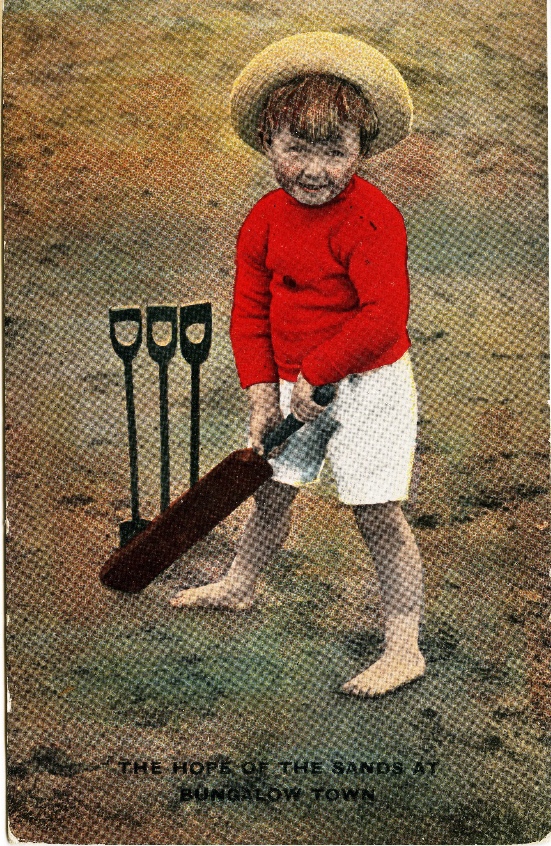Impressions of Shoreham and life 100 years ago by the writers of the old postcards
Shoreham’s early postcards were photographed and produced by a number of different people, the best known of them being W.Page of East Street, William Winton and his son who produced his cards at their printing works in Middle Street and sold them from their shops in the High Street and Brunswick Road, and Frank Rowe who developed and printed his photographs in the cellars of his shop at 18, High Street. Most people looking through collections of old postcards are attracted by the photo or view shown on the fronts – some however are equally interested in the messages on the reverse.
Messages included in the Shoreham collections are usually ‘chatty’ without much of relevance to the town but on some there are interesting snippets of information. There are those from holidaymakers who reveal their opinions of the Shoreham, the beach and the weather (mostly favourable) whereas those from WWI soldiers at the camp behind the town are less favourable, probably reflecting the basic and uncomfortable life they experienced whilst stationed there but was certainly far more preferable to the suffering they would later endure. There are also a few that involving occurrences and events that Shoreham folk themselves would have known and witnessed.
These are all examples from the collections of Doris Steers, Peggy Bailey and the Sussex Archaeological Society (SAS) which can all be seen on the web site http://www.shorehambysea.com. Each extract is followed by the shorehambysea.com historic photo gallery image reference number of the postcard it is taken from.
Holidaymakers
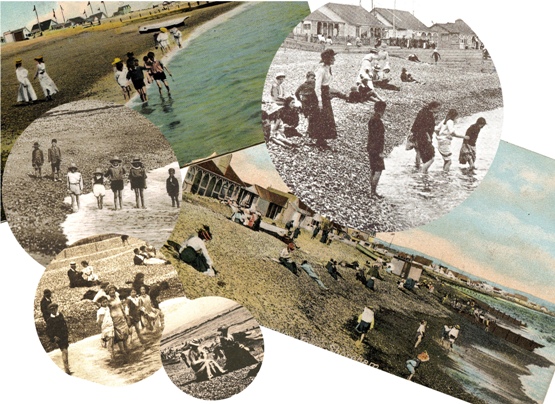
– youthful enthusiasm:-
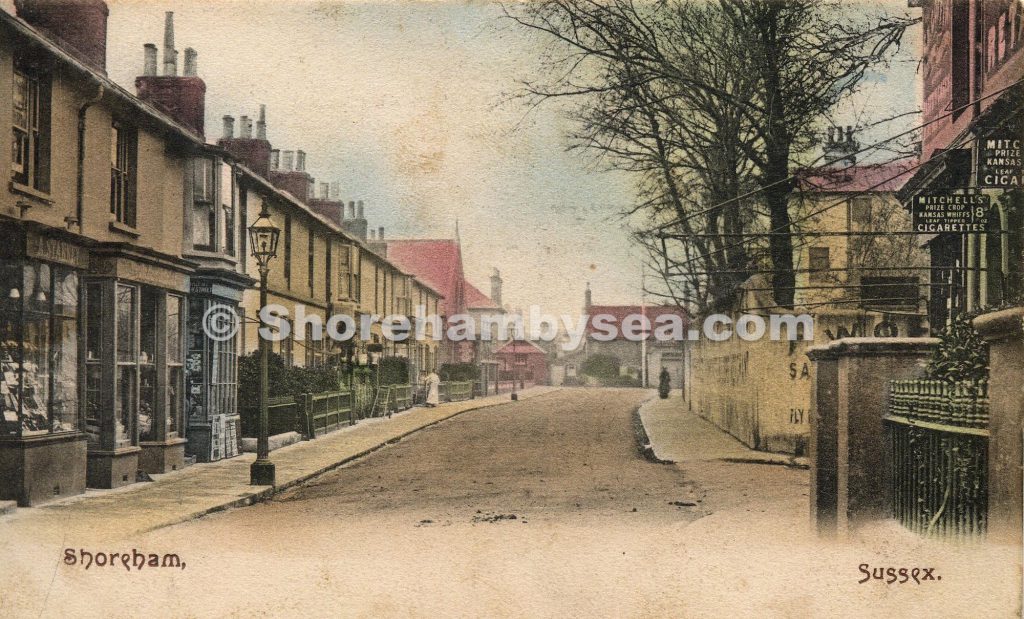
“….just A1 here….” says a young holidaymaker in 1916 (p94) and a 1904 message from young Oliver Beak at ‘Belvedere’ bungalow by Widewater on Shoreham Beach to Master George Williams in Tunbridge Wells reads “We are staying at a bungalow here. It is jolly decent. We don’t go back to school until Sept 20th. I am just going to have a row now on the backwater behind our bungalows.”(Doris Steers 4c)
– lovely weather:-
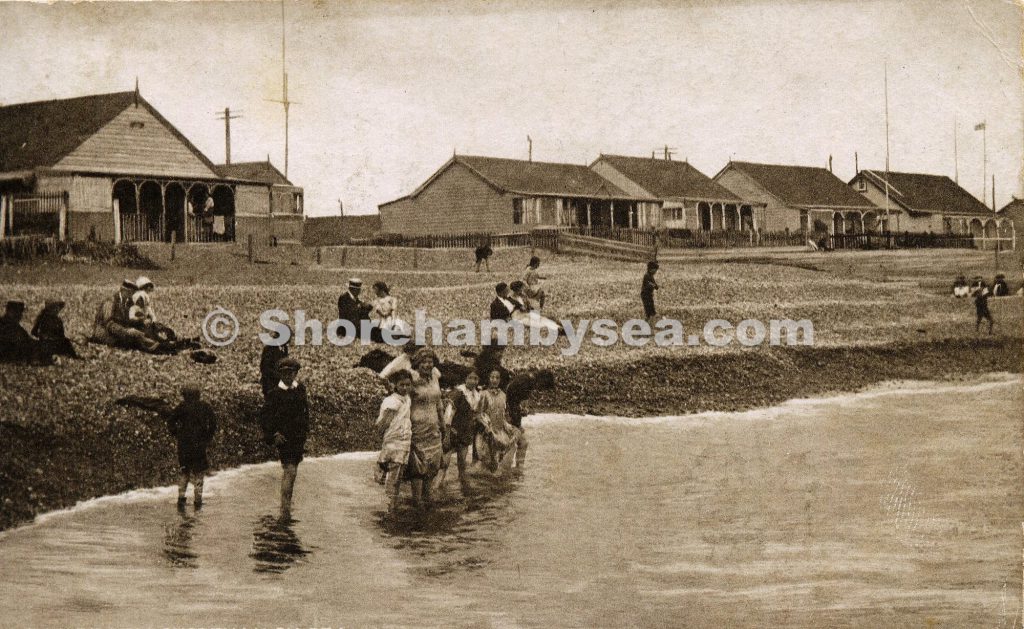
Message dated 22/8/1916 to a Worcester address reads “We are having a lovely time here so far the weather is grand. The sun is scorching I was on the beach all day yesterday. Harold and Arthur were in the water nearly all morning. We are all going for a spin to Hove this afternoon.” (Doris Steers 62c)
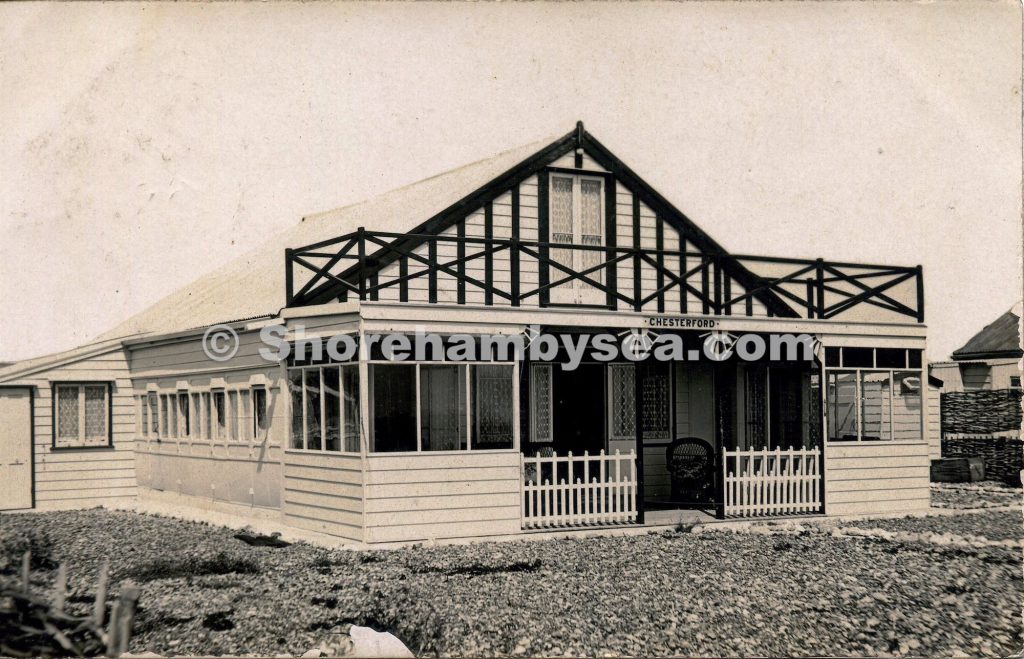
Message dated 1905 to a Reigate address reads on the front of the card “X – this is where we are staying not far from the sea. We went for a pretty walk to Old Shoreham last evening.” – and on the reverse “Such a lovely day. Numbers of people about and bathing going on all day. Constance has been in 3 times today! We may go to Worthing tomorrow. We are reading Eleanor Flyer’s (Flyns?) book ‘Beyond the Weks’ (Wrecks?). There are 5 people here besides ourselves we are both getting very brown.” (Doris Steers 51c)
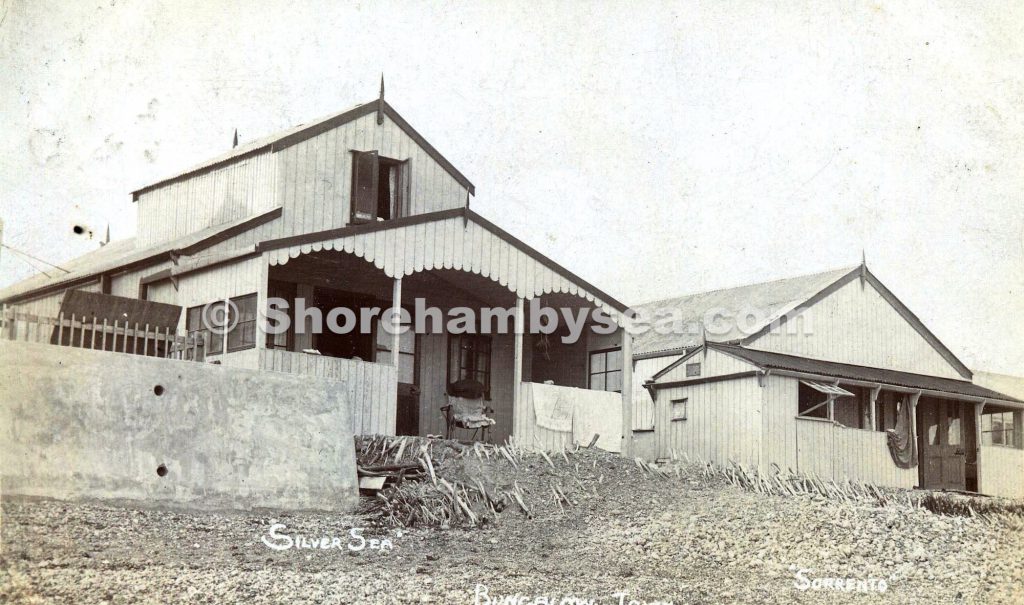
Post stamped 1911 message from Meg staying at Silver Sea to a Fulham address reads ” Dear Kate, what do you think of our bungalow. We are having lovely weather. Return next Saturday. My face resembles a beetroot.” (Doris Steers 72c)
– weather not so good
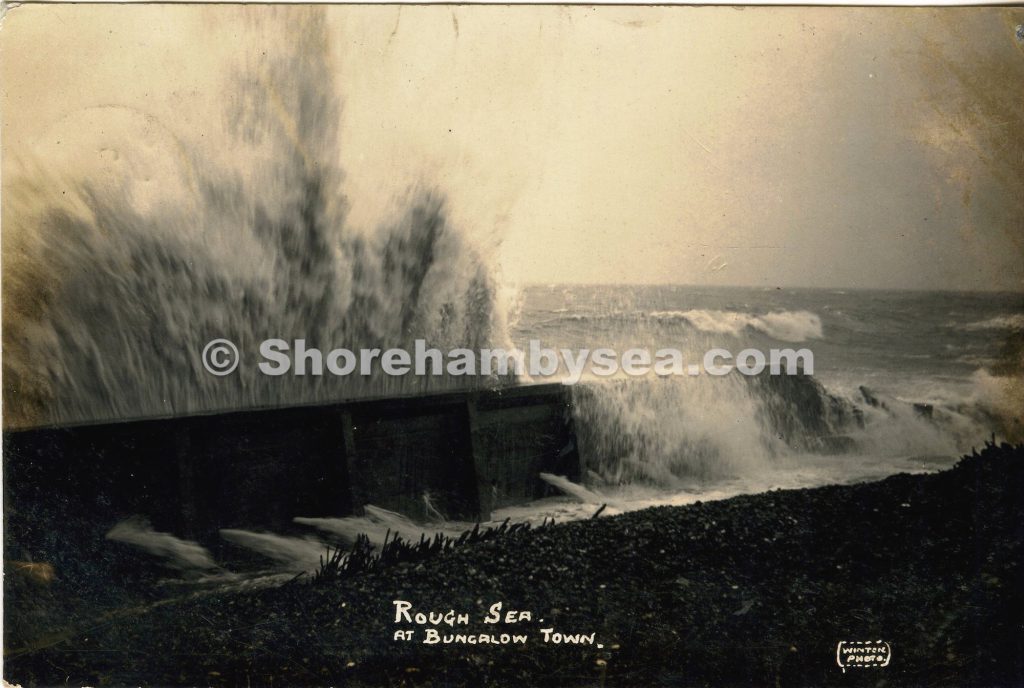
This on a postcard showing stormy seas off Shoreham beach dated 30/10/1913 and sent to a Charlton, Kent address includes “…. This is how the sea looked on Tuesday. Miss H and I went to look at it and we could scarcely stand. You can imagine what it looked like after it. I had to burst out laughing when I saw myself…..” – written from ‘North View’ bungalow. (Doris Steers 66b)
– a later weather report:-
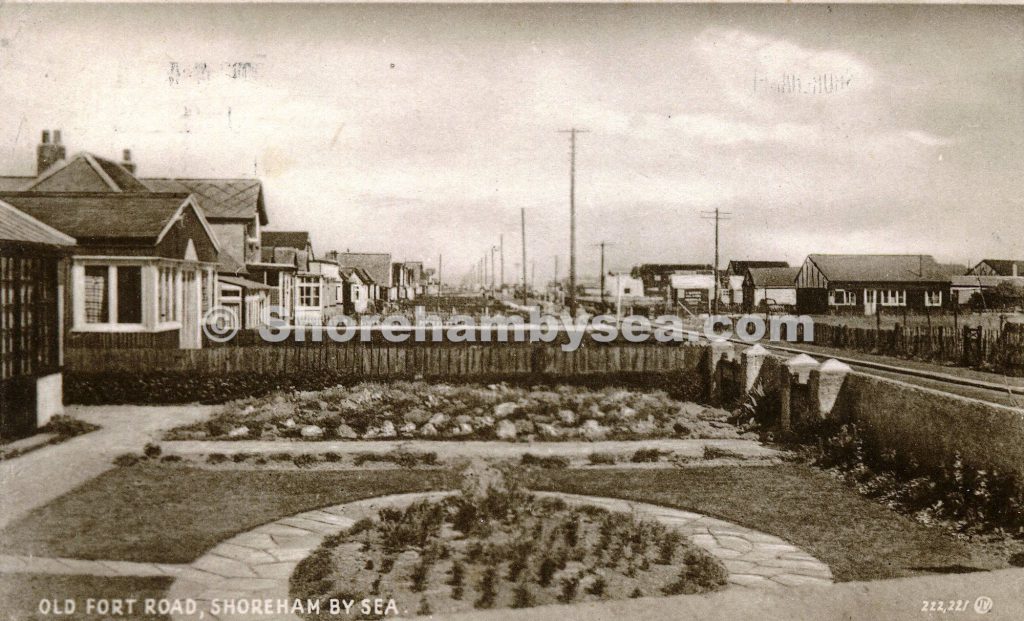
Message dated 1934 on reverse addressed to Sydenham, London, includes “….This is the road I am staying in (i.e., Old Fort Road). Weather not as bad. Caught a nice few fish yesterday, eels, dab and bream. Time getting short, flies by.” (Doris Steers 64c)
Soldiers
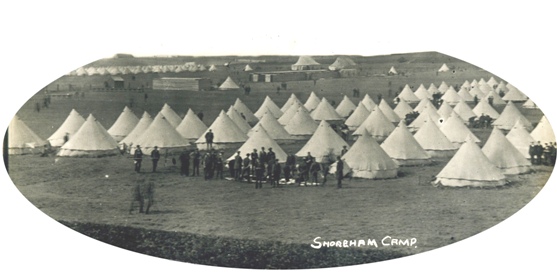
Initially a holding/preparation camp during the first two years of the war for UK soldiers of the newly formed 24th Division which was subsequently to incur an horrendous 4,178 casualties on 26th September 1915 in France after leaving Shoreham. The tented land behind Shoreham was by 1916 used by new recruits from Derby and elsewhere as well as a convalescent centre for wounded combatants from the Commonwealth. Many of these men were Canadian which subsequently led to part of the camp being taken over by the Canadian Government.
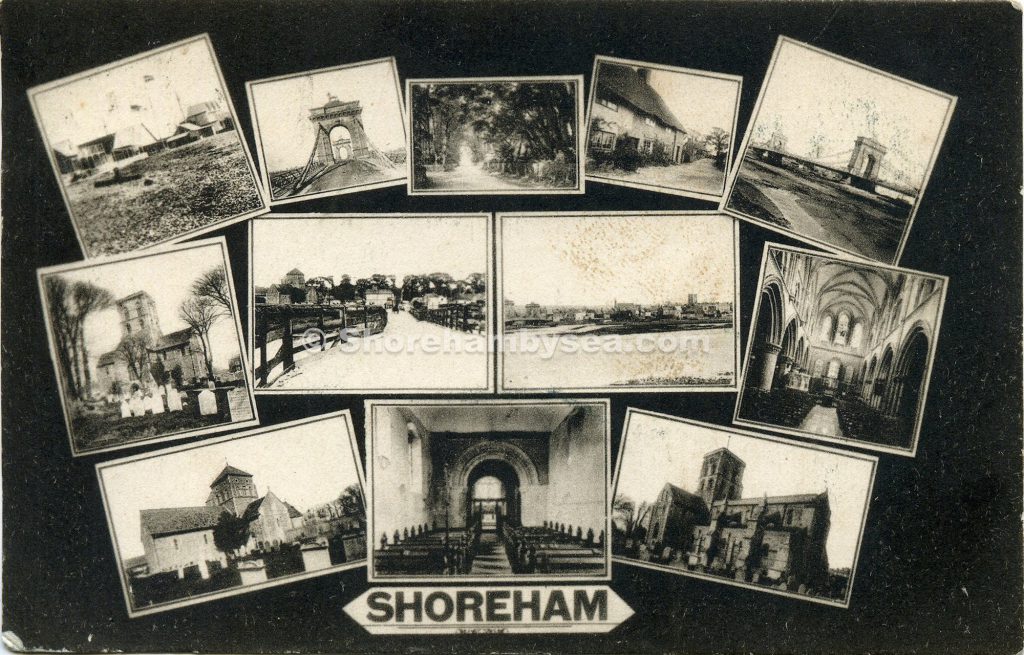
Post marked 1916 this message addressed to Mrs D.Oliver in Chelmsford from ‘Arthur’ obviously pleased with his promotion ends “…. your boy Corp.Oliver’” and if the message hadn’t been clear enough he added “Please note I have got promoted. If I stayed another week I should be sergeant.” (Peggy Bailey 99)
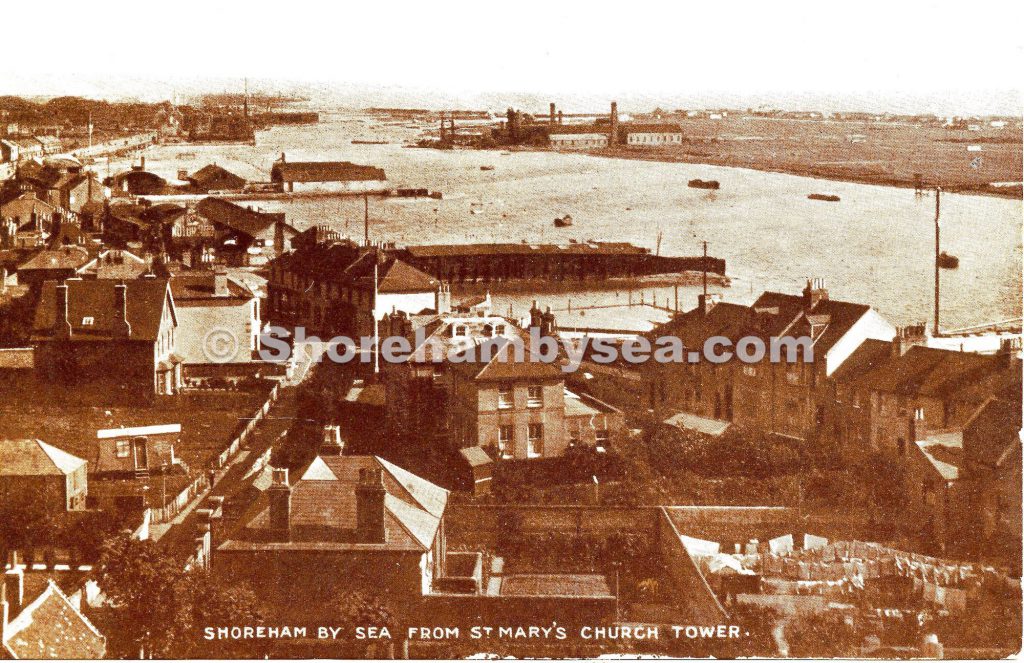
A less than enthusiastic impression from this soldier in 1916:- “….we arrived at this rotten hole at 5.50am. In awful huts about 2 miles from the village….” if he was a newly recruited man perhaps he was used to a more privileged life before the army and one wonders how he was later to compare Shoreham camp to the hell he may later have experienced in the trenches.(Doris Steers 58b)
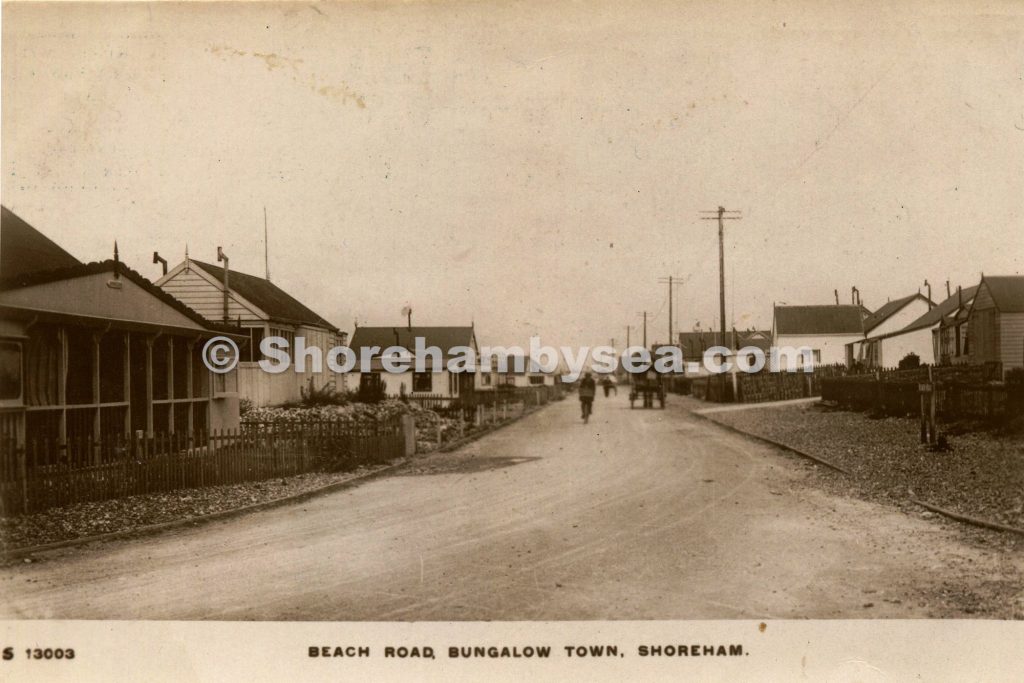
Postmarked 11/1/1917 and not addressed on the reverse as the card was probably put in an envelope; message reads “B. Coy. 64th Battalion” (a Canadian battalion that served on the Somme) – “Dear Mother, I have just received your letter. Although there is much talk of moving we are still here. I had rather a good trip all the road back as there were lots of the Imperials travelling and I was in conversation all the time. We are all wishing to get the order to pack up but no one appears to know where we are going or when. I see by the Canadian papers that the Canadian Government is forming up plans to give soldiers land in B.Columbia, Alberta and Sascatchwan, it is a good idea.” Did he survive the war to take advantage of the free land offer? (dks42b)
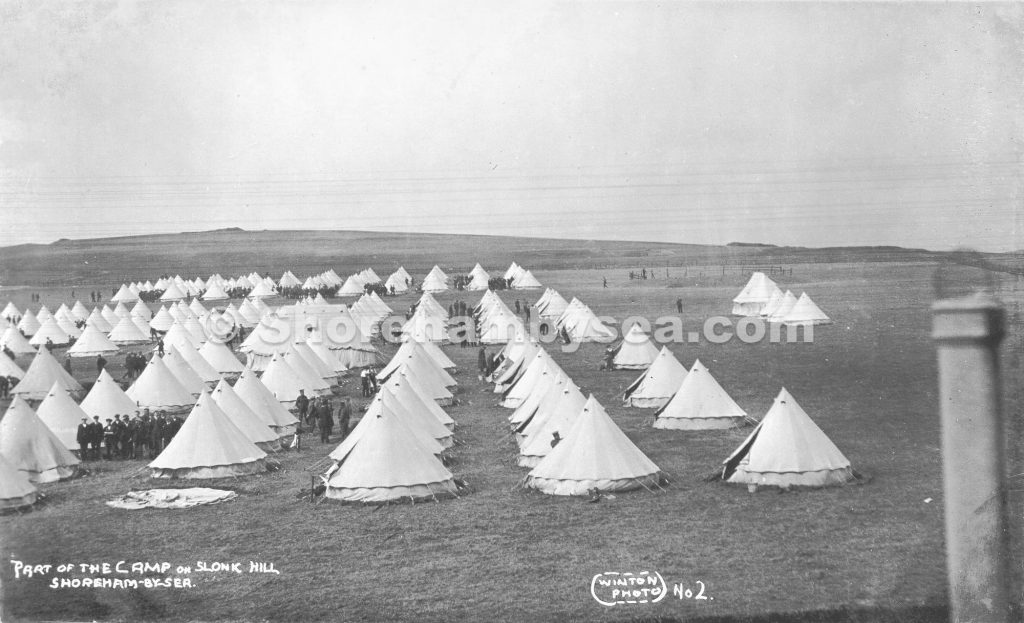
From a Dad to his daughter Miss N. Coulstock in Tunbridge Wells “Dear Norah, This is our camp where Dad is. How would you like to live with me now, 16 men in one tent. We are getting on all right, plenty of good food and getting more blankets now the nights are getting cold. Hope you are a good girl. Best love to you all at home. Hope to see you soon. Dad xxxxxx.” Did Norah ever see her Dad again? (Doris Steers 31a)
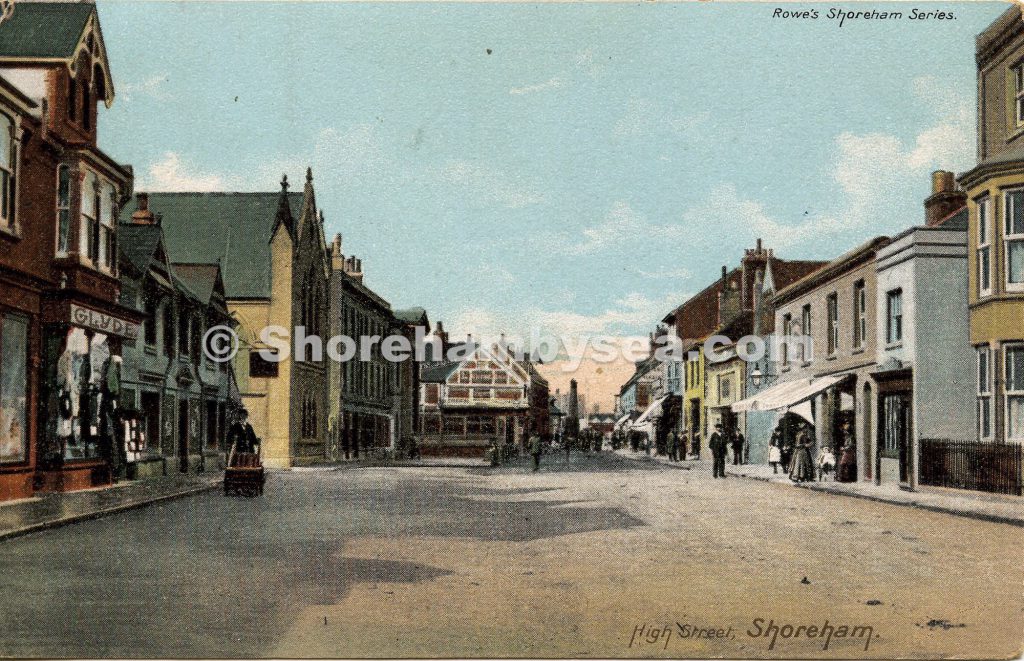
A card written by a soldier who had already been to France but no address, date or signature is shown as he wrote over the whole of the back of the card and would have been put in an envelope for reasons that will become clear:- “Dear Ma and Pa and all at home. Just a card to give you a little idea of what this place is like I don’t like it. I did (like) Bearwood (1) and we have to do a lot of work at times so you can guess it comes a bit strong after not doing any for a long time and this is where they fix all men fit for France so I guess I shall soon be on physical training so I guess I will soon be sick again at least I hope something will turn up so that I am soon back to convalescent but I guess I wont do much if I can go before another Board I shall ask for a Base job I will be just satisfied with that as long as I don’t go to France again but if I go I shall be sick all the time then they can send me back to the Base again for no more of that Front for me I can tell you they will have a job to carry me there and I know that wont come off well now Old Dears Tat Ta for this time hoping this will find you all O.K. Remember me to all Old Sports”(Doris Steers 58a)
(1) probably Bearwood Convalescent Hospital for Canadian soldiers in Wokingham, Berkshire
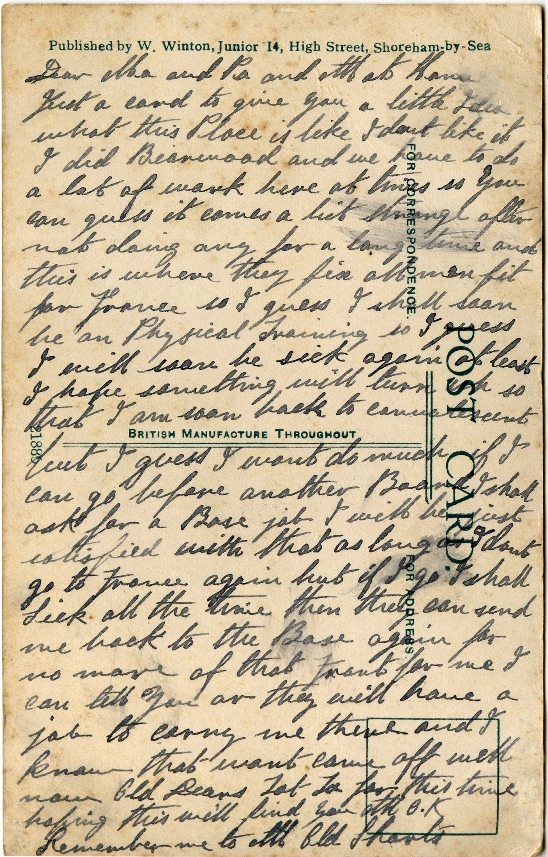
The complete omission of punctuation and the repetitiveness perhaps suggest not so much a lack of education but maybe a more a desperate fear of being returned to the Front and who can blame him? Was his ‘sickness’ mental rather than physical? What happened to him – did he manage to convince the Board not to send him back to France or was he returned nevertheless – did he manage to cope once again with active duty – did he survive the war? Without a name we shall never know.
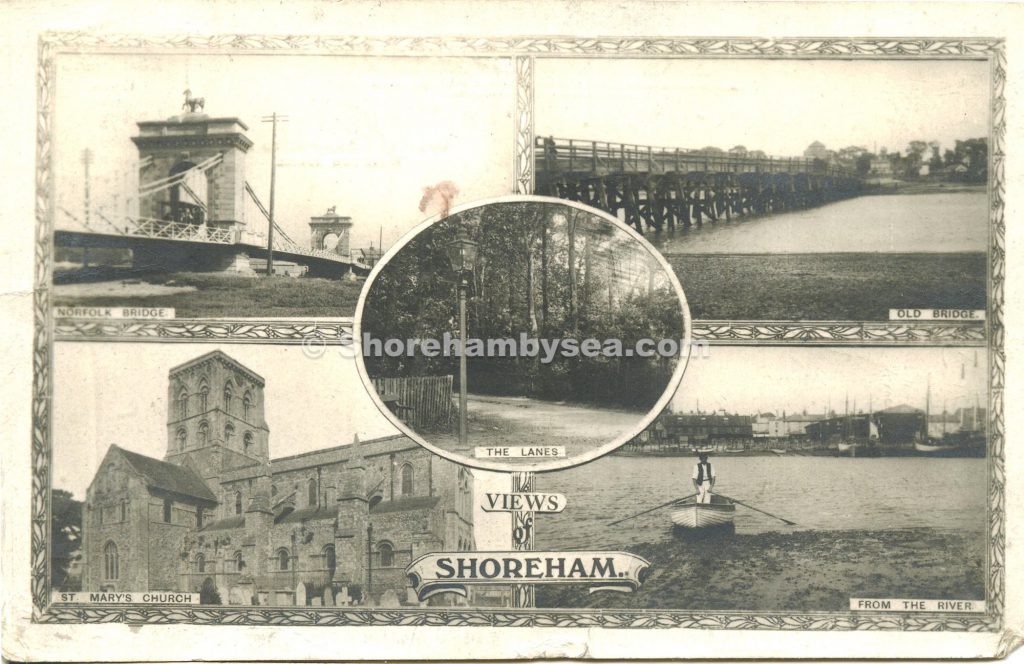
…….and a poignant final message of Feb 7th 1918 which includes “….we are leaving Shoreham this morning for overseas. I will write on arrival of the destinations….” (Peggy Bailey 64) Almost all of Shoreham Camp’s wartime soldiers ultimately left for , or returned to, France and we are all painfully aware that very many of them never came back.
Shoreham Residents
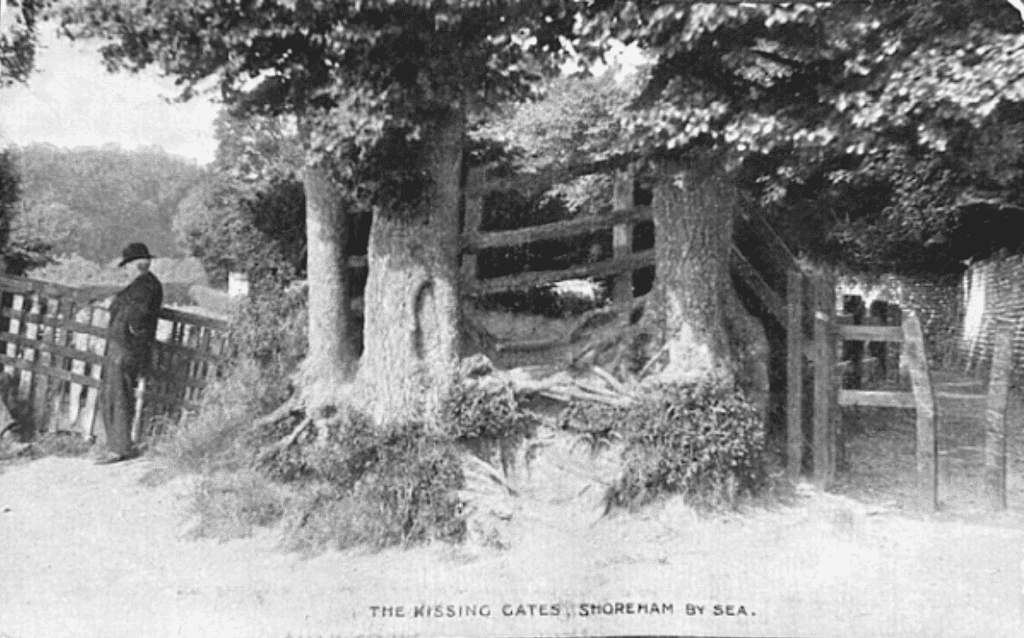
Sometimes used for simple messages as postcards then could be sent and received on the same day. This one Mill Lane (Kissing Gate), post stamped 1915, addressed to Miss N. Lockhead at 8 Gordon Road “Sorry I could not come today. I hope to come Saturday for your music“
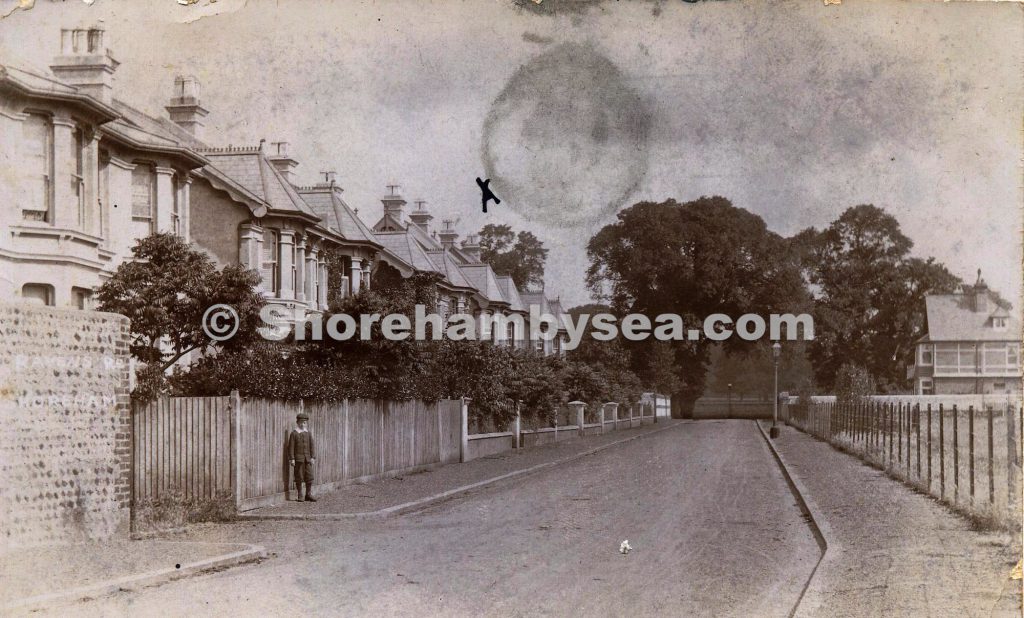
A postcard of Ravens Road, postmarked 16th Sept. 1908 has a cross against one house and reads “The house marked is our house. The houses are semi-detached. It is a good photo of the road. The boys restarted school yesterday. We saw them off from Brighton ” – sent to a Southport address. (Doris Steers 8c)
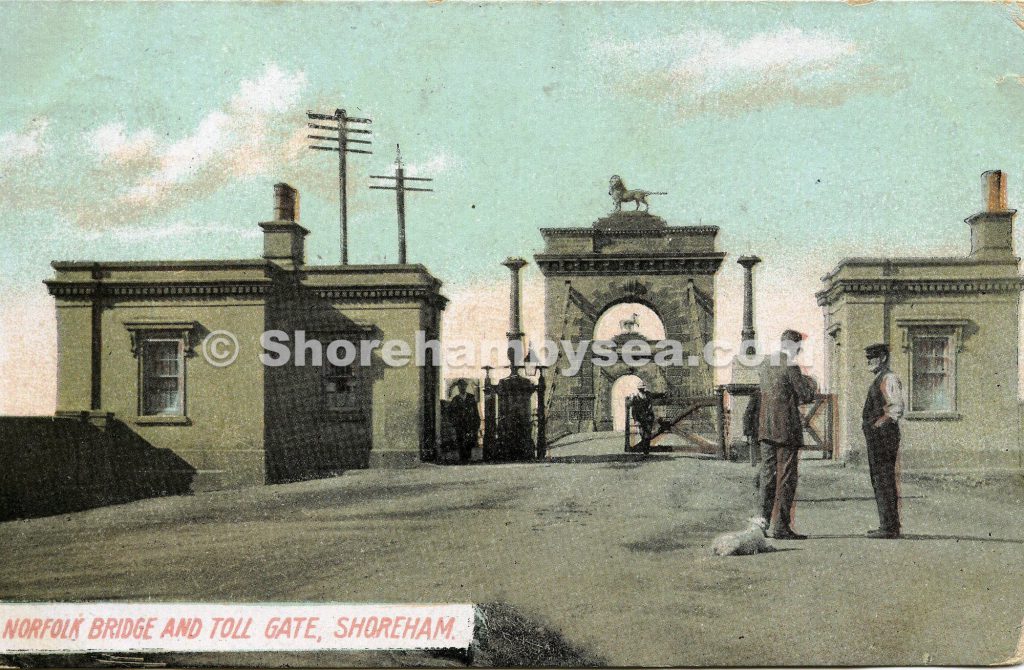
Sent to an address in Rudgwick (Sussex) from a man who had secured a job caretaking bungalows on the beach in Shoreham and whose loose country education in those days peeks delightfully through his words which include:- “ I ‘as to look after bungalows. I get plenty of sea side now. There is plenty of girls here…..” (Doris Steers 73a)
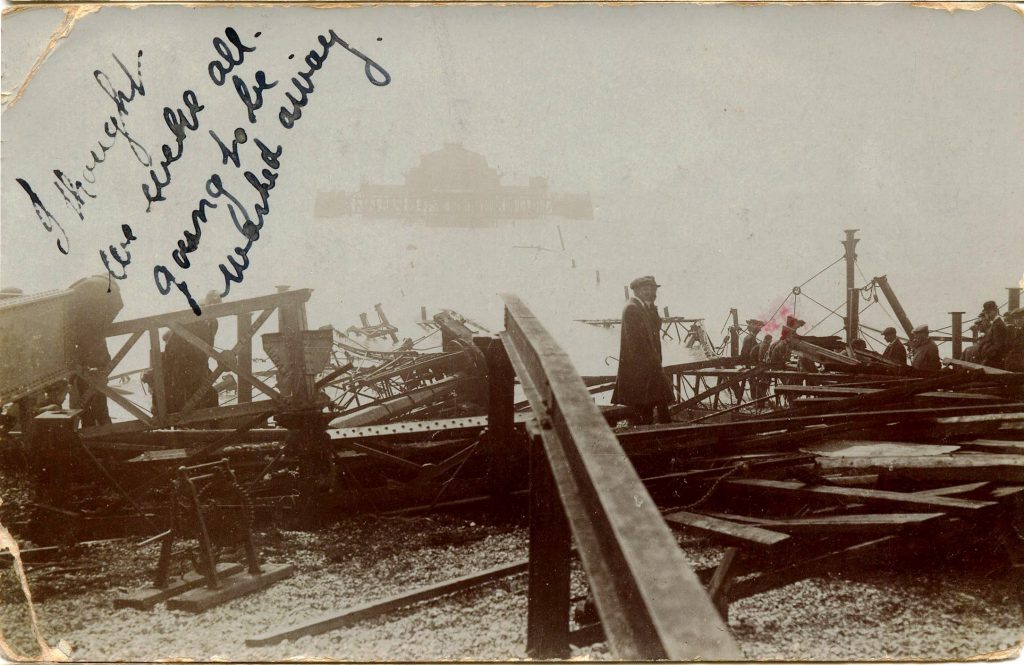
A storm damaged Worthing Pier, postmarked 1913, Ethel Rowe, wife of Frank Rowe the photographer, has written on the reverse “We have printed 2,000 copies of this” and on the front “I thought we were all going to be washed away.” (Peggy Bailey 7b)
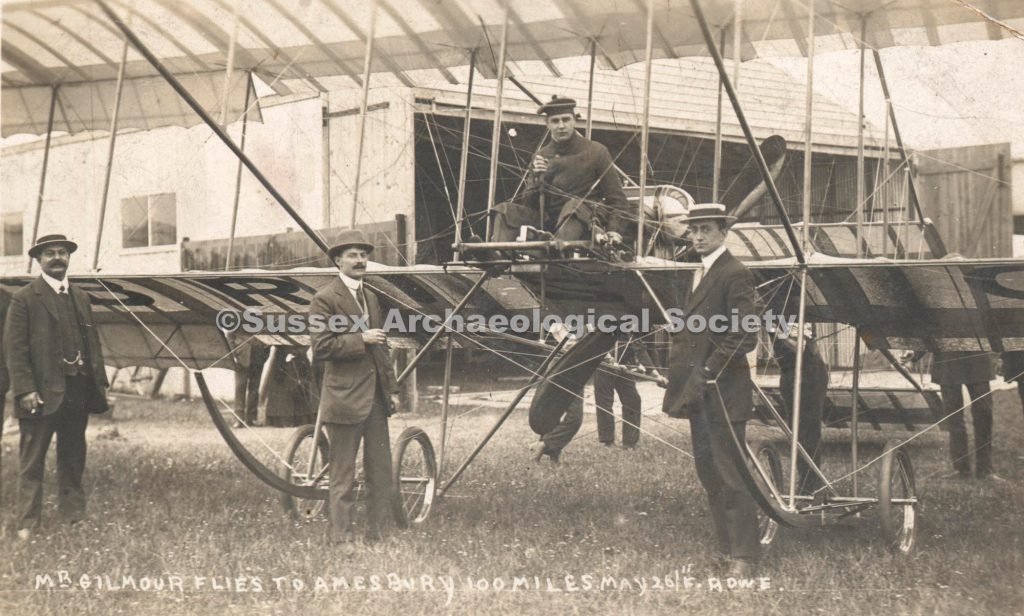
Postcard inscribed on front “Mr. Gilmour flies to Amesbury 100 miles May 26/11. F. Rowe“. Postmarked 17 February 1912 and sent to Miss Bessie Clark (Peggy Bailey’s mother) Cornhill, Rolvenden, Kent with message: “My Dear Bessie this is a photo of the young Mr. Gilmour it is so sad we knew him so well through the flying ground. Many a chat with him I have had. I have his autographs with the others. Shoreham is quite upset about it knowing him so well. Write soon with love from us all – had a photo of Tom this morning” – from Ethel Rowe, Bessie Clark’s sister. (SAS 89.323)
Douglas Graham Gilmour flew for the Boxkite Company before WW1 at air shows around the UK including Shoreham. Young, handsome and popular he soon earned a name as a daredevil type of flyer taking perhaps too many risks which once caused him to receive some rebuke from the Aviation Authorities. On the 17th February 1912 when just 27 years of age he was killed during an aviation accident at Richmond in Surrey – the same day as Ethel sent the postcard and showing that even then news got round very quickly.
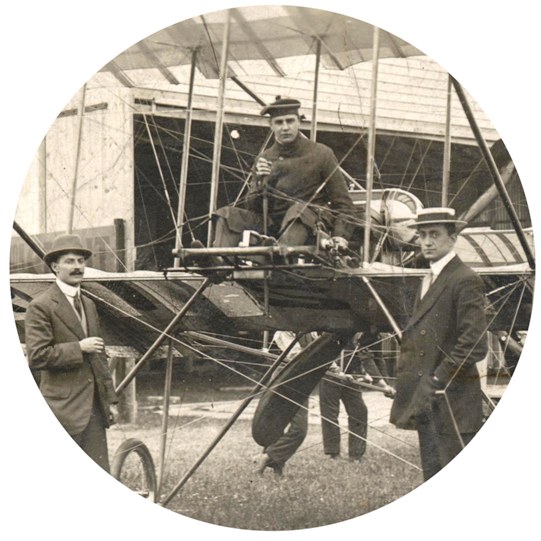
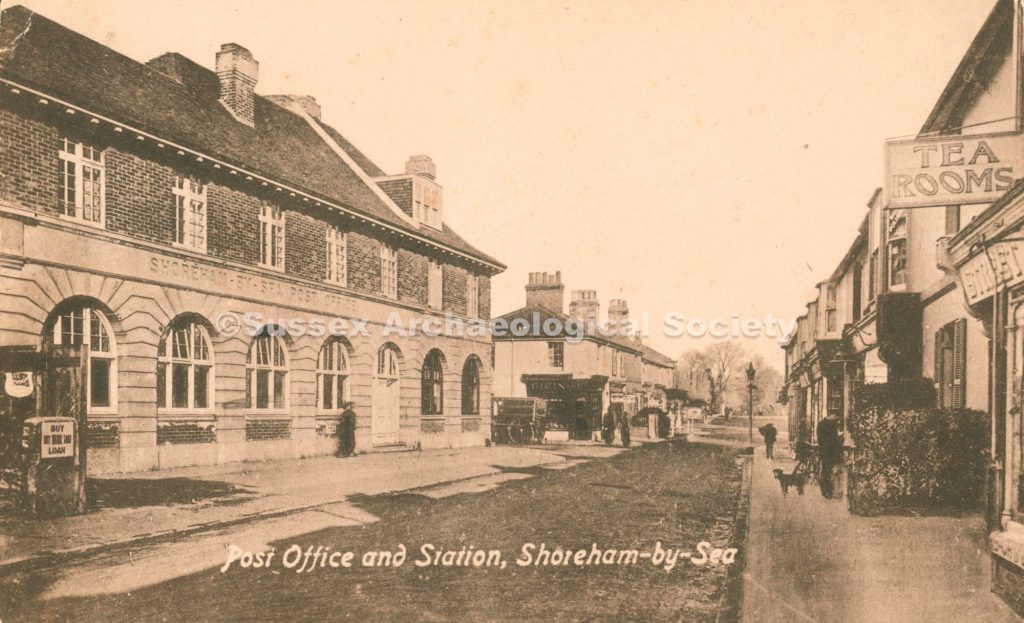
Pencil-writen message on one postcard reveals some local wartime action – addressed to “Dear Dad” it reads in part “This is a card of the new post office – the first I have seen” and also mentions “planes brought down in the last raid” and “I have just heard this morning that a boat has been torpedoed off Worthing during last night“. (SAS 89.470)
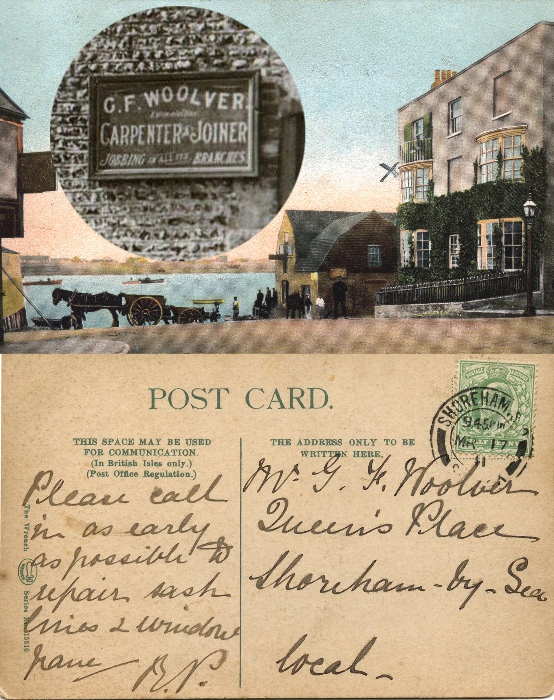
….. and finally an ‘X’ has been inserted against a window of the Dolphin Hotel on this card addressed to Mr.G.F.Woolver at Queens’ Place this message reads “Please call in as early as possible to repair sash lines and window frame – B.P.” G.Woolver was a carpenter and odd job man who turned his hand to many tasks – his sign was at one time affixed to his workshop in the old building that stood alongside the Dolphin Hotel but the postcard is addressed to him at his home in Queens Place. (Doris Steers 22c main postcard and insert of Woolver’s sign from Peggy Bailey’s card 102)
Roger Bateman
Shoreham
October 2008
